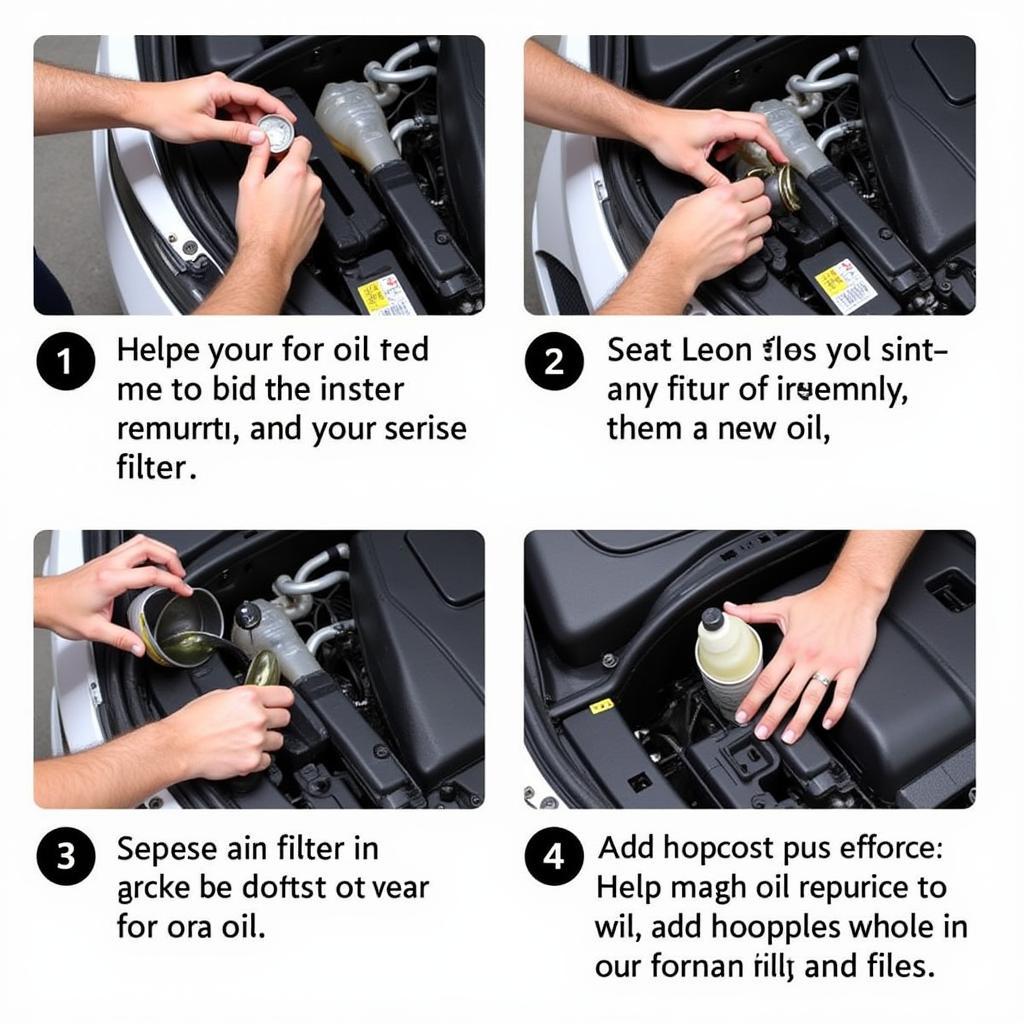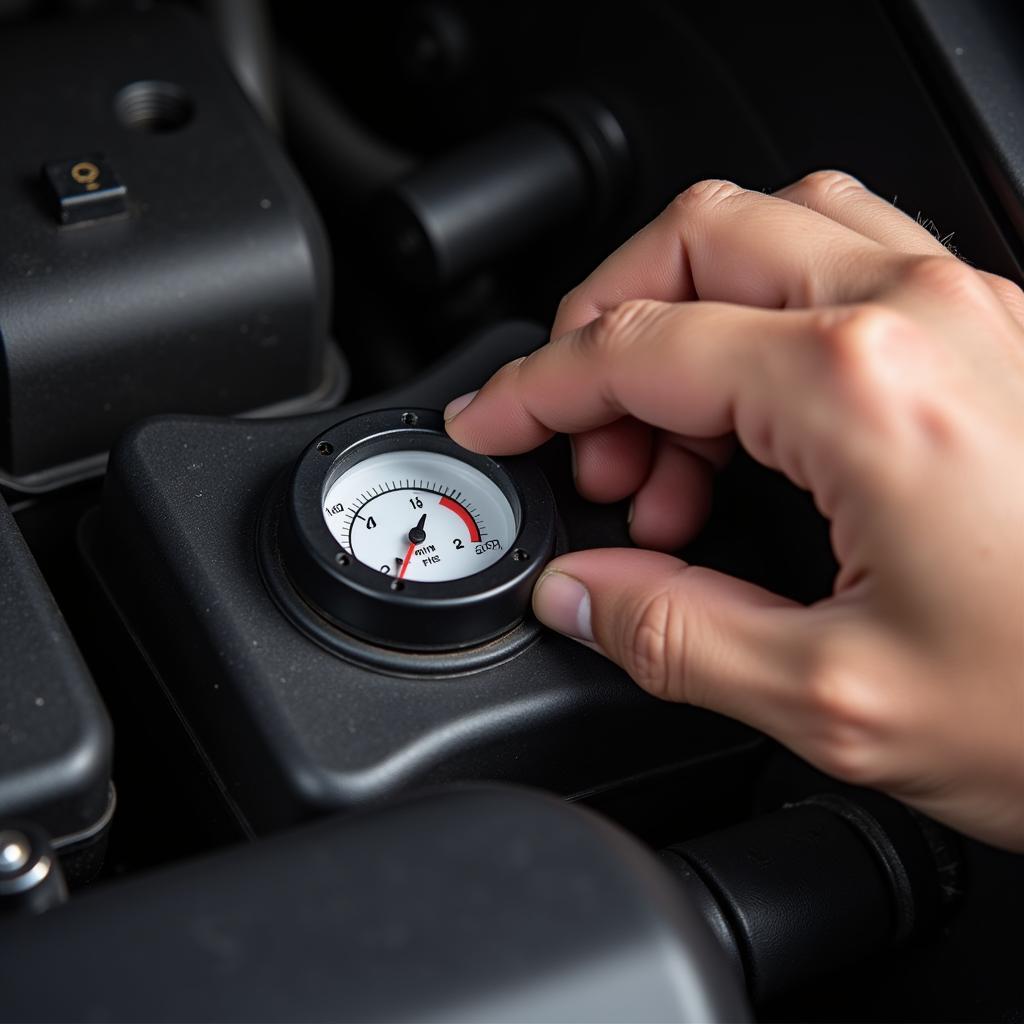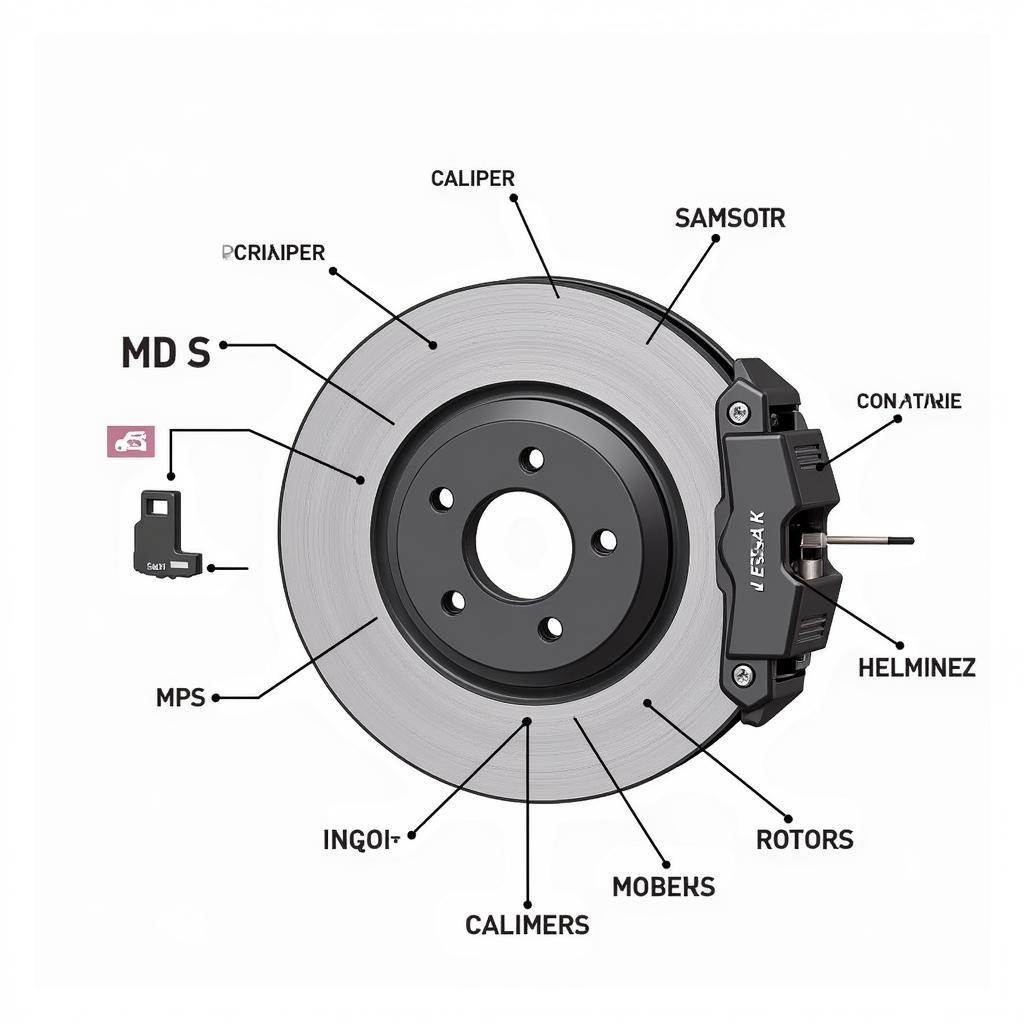The seat leon oil change warning light is a crucial indicator of your vehicle’s health. Ignoring it can lead to significant engine damage. This comprehensive guide will delve into the various reasons why this warning might appear, how to diagnose the problem, and the steps you can take to resolve it. We’ll also discuss preventative measures to avoid future issues and explore remote diagnostic and programming options. Shortly after this introduction, you will find a helpful resource regarding brake system warnings, which, while different from oil warnings, can also indicate serious vehicle issues. See our guide on the 2005 GMC Yukon brake system warning light.
Decoding Your Seat Leon’s Oil Change Warning
The oil change warning light in your Seat Leon isn’t just a suggestion; it’s a critical alert. This warning can manifest in several ways, from a simple illuminated wrench symbol to a more explicit “Oil Change Due” message. While often triggered by mileage or time since the last oil change, other factors can also cause the light to illuminate. Understanding these reasons is the first step towards effective troubleshooting.
One common reason is low oil pressure. If your oil level drops below a certain threshold, the oil pump struggles to maintain adequate pressure throughout the engine. This lack of pressure triggers the warning light and, if left unaddressed, can lead to severe engine wear and tear. Another culprit can be dirty oil. Over time, oil accumulates contaminants and loses its lubricating properties. This degraded oil can also trigger the warning system.
Low Oil Pressure: Causes and Solutions
Low oil pressure is a serious issue that demands immediate attention. It can stem from various problems, such as a faulty oil pump, a leaking oil filter, or even a cracked oil pan. Diagnosing the exact cause often requires a professional inspection. A mechanic can perform pressure tests and visually inspect the engine for leaks.
If you suspect low oil pressure, checking your oil level is the first step. If it’s low, top it off and see if the warning light disappears. However, this is a temporary fix. A persistent low oil level points to a leak that needs professional attention.
Dirty Oil: The Importance of Regular Changes
Regular oil changes are the backbone of any vehicle’s maintenance schedule. Over time, oil degrades, accumulating contaminants and losing its viscosity. This can lead to increased friction within the engine, triggering the oil change warning and potentially causing long-term damage. Adhering to your Seat Leon’s recommended oil change intervals is crucial for preventing such issues. For more information on brake warning lights, particularly in icy conditions, refer to our article on the brake system warning light GMC Yukon icy conditions.
Sensor Malfunction: When the System Gets it Wrong
Occasionally, the oil change warning light might be triggered by a faulty sensor. While less common than low oil pressure or dirty oil, a malfunctioning sensor can still cause unnecessary worry. A qualified technician can diagnose sensor problems using diagnostic tools and potentially reset the system.
Remote Diagnostics and Programming: The Future of Car Repair
Modern technology offers innovative solutions for vehicle diagnostics. Remote diagnostic services allow technicians to access your car’s computer system remotely, identify the root cause of the oil change warning, and even perform software updates or programming to rectify certain issues. This eliminates the need for immediate physical visits to a garage, saving you time and potentially reducing repair costs.
How Remote Diagnostics Work
Remote diagnostics involve connecting your vehicle’s onboard diagnostic port (OBD-II) to a specialized device that transmits data wirelessly to a technician’s computer. The technician can then analyze this data to pinpoint the problem triggering the oil change warning. They can also initiate software updates or reprogramming if necessary. This technology is rapidly evolving, offering convenient and efficient solutions for various car issues.
Preventing Future Oil Change Warnings
Proactive maintenance is the best defense against recurring oil change warnings. Regularly checking your oil level, adhering to recommended oil change intervals, and using high-quality oil are essential steps. Additionally, be mindful of your driving habits. Aggressive driving or frequent short trips can put extra strain on the engine and accelerate oil degradation. For older vehicles, you might find our guide on the 2002 GMC Yukon brake warning light helpful as a general resource for understanding vehicle warning lights.
 Seat Leon Oil Change Procedure
Seat Leon Oil Change Procedure
Conclusion
The seat leon oil change warning light is a crucial signal that shouldn’t be ignored. Addressing the underlying cause promptly can prevent costly engine damage. By understanding the potential reasons behind the warning, taking appropriate diagnostic steps, and embracing preventative maintenance, you can keep your Seat Leon running smoothly for years to come. You can also find additional resources on brake warning lights, such as our article on the 2003 GMC Yukon brake warning light.
FAQ
-
What does the seat leon oil change warning light look like? It can be a wrench symbol or an “Oil Change Due” message.
-
What should I do if the light comes on? Check your oil level, and if it’s low, top it off. If the light persists, consult a mechanic.
-
How often should I change my Seat Leon’s oil? Refer to your owner’s manual for the recommended interval.
-
Can a faulty sensor trigger the warning? Yes, a malfunctioning sensor can sometimes cause the light to illuminate.
-
What are the benefits of remote diagnostics? Remote diagnostics can save time and potentially reduce repair costs by allowing technicians to diagnose issues remotely.
-
What is the best way to prevent future oil warnings? Regular maintenance, including oil changes and level checks, is crucial.
-
Can driving habits affect oil life? Yes, aggressive driving or frequent short trips can degrade oil faster.


